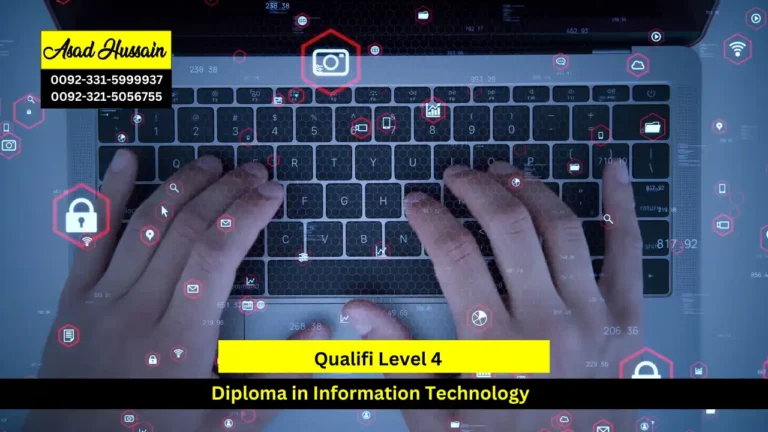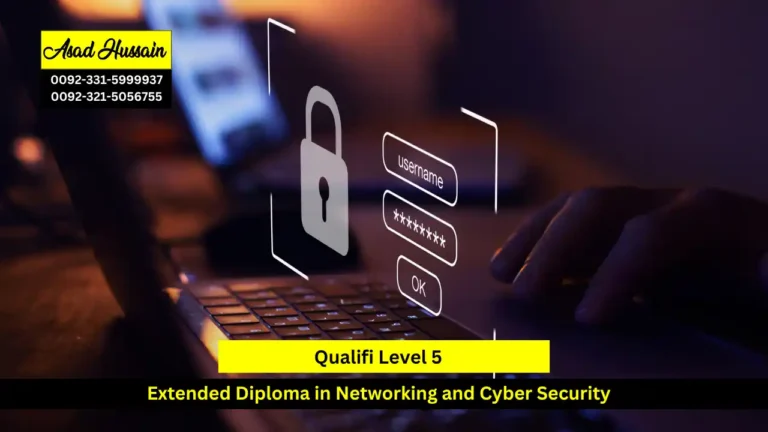In today’s digital age, e-commerce is a critical component of business strategy and operations. The demand for professionals with expertise in e-commerce continues to grow as businesses increasingly shift their focus to online platforms. The Qualifi Level 4 Diploma in IT – E-commerce is designed to equip you with the knowledge and skills needed to excel in this dynamic and fast-paced field.
The Qualifi Level 4 Diploma in IT – E-commerce is a comprehensive program that provides a deep understanding of the principles and practices of e-commerce. This diploma covers a broad range of topics, from the technical aspects of creating and managing e-commerce platforms to the strategic elements of online business development and marketing.
The Qualifi Level 4 Diploma in IT – E-commerce is an excellent stepping stone for anyone looking to build a career in the exciting world of e-commerce. Whether you are a recent graduate, a working professional seeking to upskill, or an entrepreneur looking to enhance your business’s online presence, this diploma offers the knowledge and skills you need to succeed.
Program Highlights
The Qualifi Level 4 Diploma in IT – E-commerce consist of 120 credits for the completed qualification.
Mandatory Units
- Information Technology and IT Ethics
- Mathematics and Statistics for IT
- PC Maintenance and Operating Systems
- Computer Graphics Editing and Database Concepts
- Graphical User Interface (GUI)
- Programming Concepts and Java for Android Programming
- demonstrated some ability and possess qualifications at Level 3, for example ‘A’ Levels or vocational awards;
- spent some time in an organisational role and shown they have capability and drive to develop;
- seeking further professional development and to gain work related skills and know-how.
Information Technology and IT Ethics
- Understand the Role of IT: Explain the significance of information technology in modern business operations and its impact on various industries.
- Analyze Ethical Issues: Identify and evaluate ethical issues related to IT, including privacy, security, intellectual property, and digital rights management.
- Implement Ethical Practices: Develop strategies for implementing ethical practices in IT operations and decision-making.
- Legal and Regulatory Frameworks: Understand the legal and regulatory frameworks governing IT and how they influence business practices.
Mathematics and Statistics for IT
- Apply Mathematical Concepts: Use mathematical principles to solve problems related to IT, such as algorithms, data structures, and computational logic.
- Statistical Analysis: Perform statistical analysis to interpret data, identify trends, and make informed decisions in IT projects.
- Mathematical Modelling: Develop mathematical models to simulate and optimize IT systems and processes.
- Quantitative Problem-Solving: Utilize quantitative techniques to address complex IT challenges and improve system performance.
PC Maintenance and Operating Systems
- PC Hardware and Software: Understand the components of PC hardware and software and their functions.
- Maintenance Techniques: Perform routine maintenance and troubleshooting of PCs to ensure optimal performance.
- Operating System Management: Install, configure, and manage various operating systems, including Windows, macOS, and Linux.
- System Security: Implement security measures to protect PCs and operating systems from threats and vulnerabilities.
Computer Graphics Editing and Database Concepts
- Graphic Design Principles: Apply principles of graphic design to create visually appealing and functional digital content.
- Image Editing Tools: Use image editing software to manipulate and enhance digital images.
- Database Design: Design and implement databases to store, manage, and retrieve data efficiently.
- SQL Proficiency: Develop proficiency in SQL for querying and managing databases.
Graphical User Interface (GUI)
- GUI Design Principles: Understand the principles of GUI design and their importance in enhancing user experience.
- Interface Development: Develop user-friendly interfaces for applications using appropriate tools and frameworks.
- User Interaction: Analyze user interaction patterns to design intuitive and accessible interfaces.
- Usability Testing: Conduct usability testing to identify and address issues in GUI design and functionality.
Programming Concepts and Java for Android Programming
- Fundamental Programming Concepts: Understand the core concepts of programming, including variables, data types, control structures, and algorithms.
- Java Programming: Develop proficiency in Java programming, focusing on its application in Android development.
- Android Development: Design and build Android applications using Java, adhering to best practices and industry standards.
- Debugging and Testing: Implement debugging and testing techniques to ensure the functionality and reliability of Android applications.
The Qualifi Level 4 Diploma in IT – E-commerce is designed for a diverse range of individuals looking to build a solid foundation in e-commerce and information technology. This course is ideal for recent graduates seeking to enter the IT and e-commerce sectors, professionals looking to upskill and stay competitive in a rapidly evolving job market, and entrepreneurs aiming to enhance their online business presence. It caters to those with a keen interest in technology and digital marketing, providing them with the essential knowledge and practical skills needed to thrive in the dynamic world of e-commerce. Whether you’re starting your career or aiming to pivot into the e-commerce industry, this diploma offers the expertise required to succeed.







